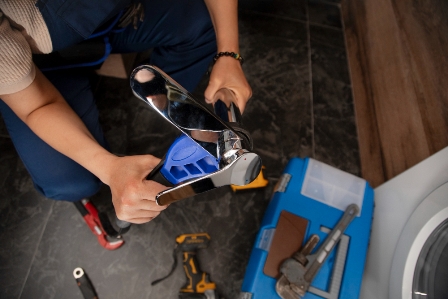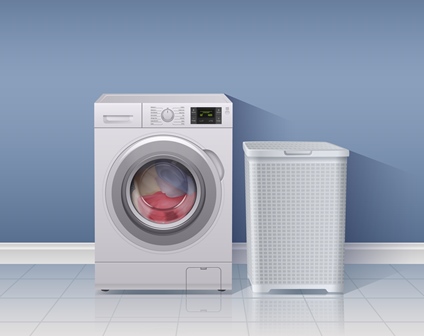Home improvement projects can enhance the aesthetics, functionality, and value of your home. Whether you’re planning a minor upgrade or a major renovation, one key decision is whether to take the DIY route or hire professionals. While DIY projects can be cost-effective and rewarding, some renovations require expertise to ensure safety, quality, and efficiency. This guide explores the pros and cons of DIY vs. professional home improvement and provides smart tips for making the best decision for your project.
1. Understanding DIY Home Improvement
DIY (Do-It-Yourself) home improvement projects involve completing renovations or repairs using your own skills, tools, and resources rather than hiring a professional.
Pros of DIY Home Improvement
- Cost Savings: You save on labor costs, which can make a big difference in your budget.
- Personal Satisfaction: Completing a project on your own can be fulfilling and rewarding.
- Flexibility: You can work at your own pace and adjust plans as needed.
- Skill Development: Each project improves your home improvement skills over time.
Cons of DIY Home Improvement
- Time-Consuming: Projects can take longer to complete, especially if you have limited experience.
- Quality Concerns: Lack of expertise may result in mistakes that compromise durability and appearance.
- Safety Risks: Some projects involve hazards such as electrical work, roofing, or plumbing.
- Limited Warranty: If something goes wrong, fixing DIY errors may cost more than hiring a professional initially.
2. When to Choose DIY Home Improvement
Not all projects require professional help. Consider DIY for tasks that are:
- Simple and require minimal expertise (e.g., painting walls, assembling furniture, landscaping)
- Low-risk in terms of safety and structural integrity
- Easily reversible if mistakes are made
- Manageable with standard tools and available resources
Examples of DIY-Friendly Projects:
- Painting walls or cabinets
- Installing shelves
- Replacing light fixtures
- Adding a backsplash
- Refinishing furniture
- Basic landscaping
3. Understanding Professional Home Improvement
Hiring a professional contractor or tradesperson ensures that your renovation is handled by experts with the right tools, skills, and experience.
Pros of Hiring Professionals
- Expertise & Quality: Trained professionals ensure high-quality work that meets industry standards.
- Time Efficiency: Professionals complete projects faster than most DIYers.
- Safety Assurance: Reduces risks associated with electrical work, plumbing, and structural modifications.
- Permits & Compliance: Licensed professionals handle necessary permits and ensure compliance with building codes.
- Warranty & Insurance: Work done by professionals often comes with guarantees and insurance coverage.
Cons of Hiring Professionals
- Higher Costs: Labor fees and contractor rates increase the overall expense of the project.
- Scheduling Dependence: You may have to work around the contractor’s availability.
- Less Personalization: Some contractors may not fully align with your creative vision unless clearly communicated.
4. When to Hire a Professional
Certain home improvement projects require specialized skills and should be handled by professionals.
Consider hiring a professional for:
- Structural changes (e.g., removing walls, foundation work)
- Electrical wiring and panel upgrades
- Plumbing system repairs or installations
- Roof repairs or replacements
- Major flooring installations
- HVAC repairs and installations
- Custom cabinetry and complex carpentry work
5. Smart Tips for Renovating Efficiently
Whether you choose DIY or professional services, consider these tips to renovate smartly:
A. Assess the Project Scope
- Determine the complexity and technical requirements of the project.
- Research materials, tools, and estimated time needed.
- Identify potential challenges before starting.
B. Budget Wisely
- Get multiple quotes from contractors for professional work.
- Compare the cost of DIY materials vs. professional services.
- Allocate a contingency budget for unexpected expenses.
C. Prioritize Safety
- Use protective gear and follow safety guidelines for DIY tasks.
- Never attempt electrical or structural work without proper knowledge.
- Ensure professional contractors have licenses and insurance.
D. Use Quality Materials
- Invest in durable, high-quality materials to avoid frequent repairs.
- Consider eco-friendly and cost-efficient options.
E. Know When to Ask for Help
- Consult professionals for advice on DIY projects.
- Seek online tutorials, workshops, or community forums for guidance.
- Don’t hesitate to call an expert if you’re unsure about a step.
6. Hybrid Approach: Combining DIY and Professional Help
For budget-conscious homeowners, a hybrid approach works best. You can DIY simple tasks while leaving complex parts to professionals. For example:
- DIY prep work (e.g., demolition, painting, assembling furniture) and hire a pro for installations.
- Handle interior decor changes yourself while hiring a contractor for major renovations.
Conclusion
Deciding between DIY and professional home improvement depends on the project type, budget, skill level, and time availability. While DIY projects can be rewarding and cost-effective, hiring professionals ensures efficiency, safety, and quality results. By assessing each renovation carefully and adopting a smart approach, you can successfully enhance your home while minimizing costs and risks.





